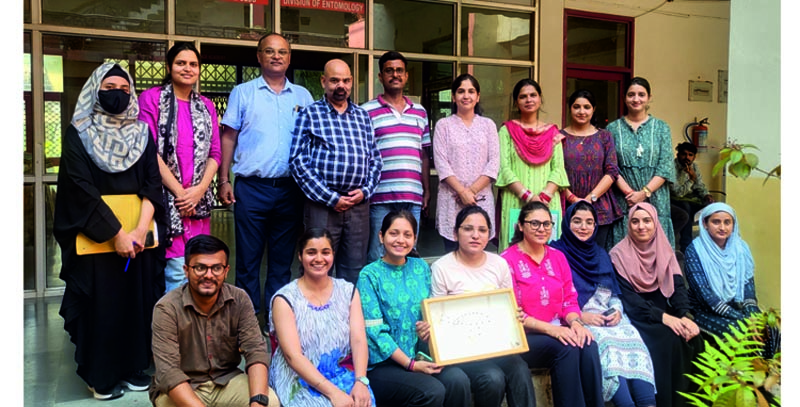
Excelsior Correspondent
JAMMU, Sept 4: The Entomological Science Academy (ESA) of Division of Entomology, SKUAST-Jammu celebrated Fireflies Day today to spotlight nature’s original firework displays.
On the occasion, a series of lectures, painting competition and quiz on fireflies’ conservation, ecology and environment was organized to create awareness and advance a public conservation ethic by sharing information about fireflies and their habitat requirements in Jammu region.
Dr Rakesh Kumar Gupta (president, ESA) portrayed the contribution of fireflies for stable ecosystem functioning. He further emphasized on conservation of fireflies through protecting firefly habitats from potential threats by providing safe places to overwinter, eliminating use of pesticides especially broad spectrum insecticides that can directly kill fireflies or their prey, limit ground disturbing activities that can harm larvae and flightless adult females and reducing outdoor lighting when possible especially during the summer when adult fireflies are active.
Other faculty members including Dr Uma Shankar, Dr RS Bandral, Dr Kamlesh Bali and Dr AK Singh, highlighted their experiences on this insect while the students and research scholars also spoke on this occasion and took pledge to conserve fireflies for future generations.
The purpose of this brainstorming session was to involve all the stake holders to provide food, shelter, moisture, protection from pesticides, to save these creatures. It was concluded that as fireflies contribute to the food-web stability, playing important roles as both predators and prey, they can be highly beneficial in gardens and agricultural settings, and are indicators of climax vegetation.
Observing that fireflies have immense cultural, biological and economic importance and are important components of natural ecosystems, an public appeal was made to make them an ideal flagship for conservation.

